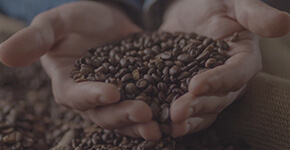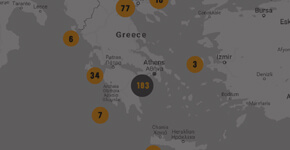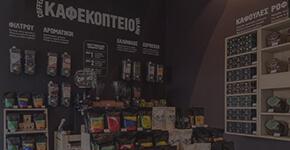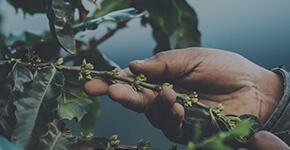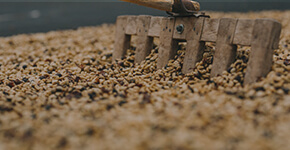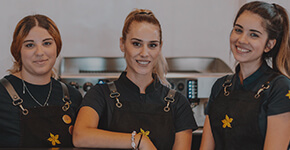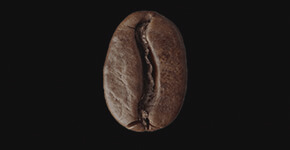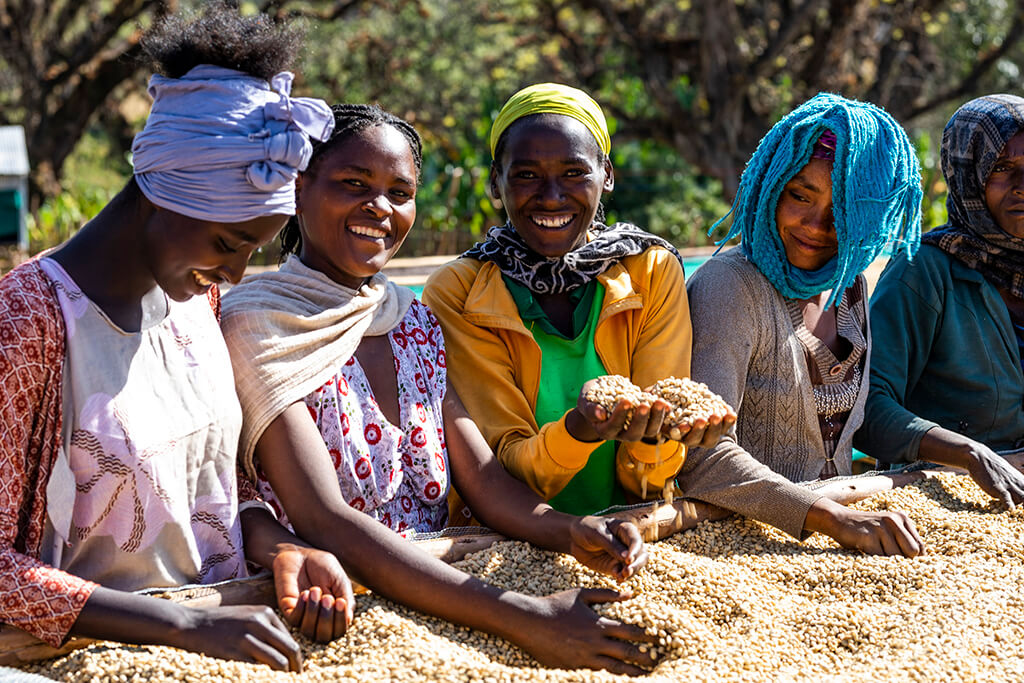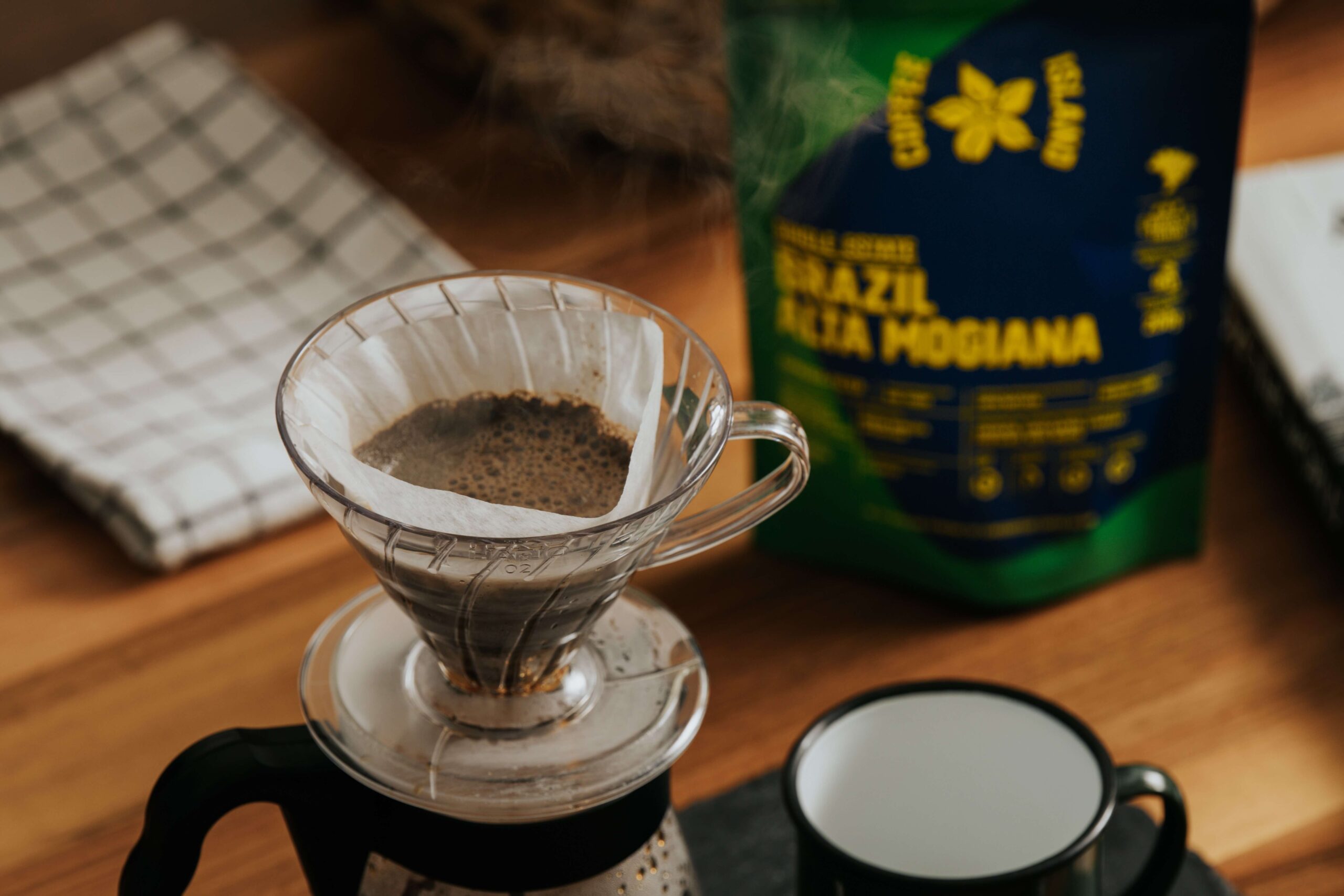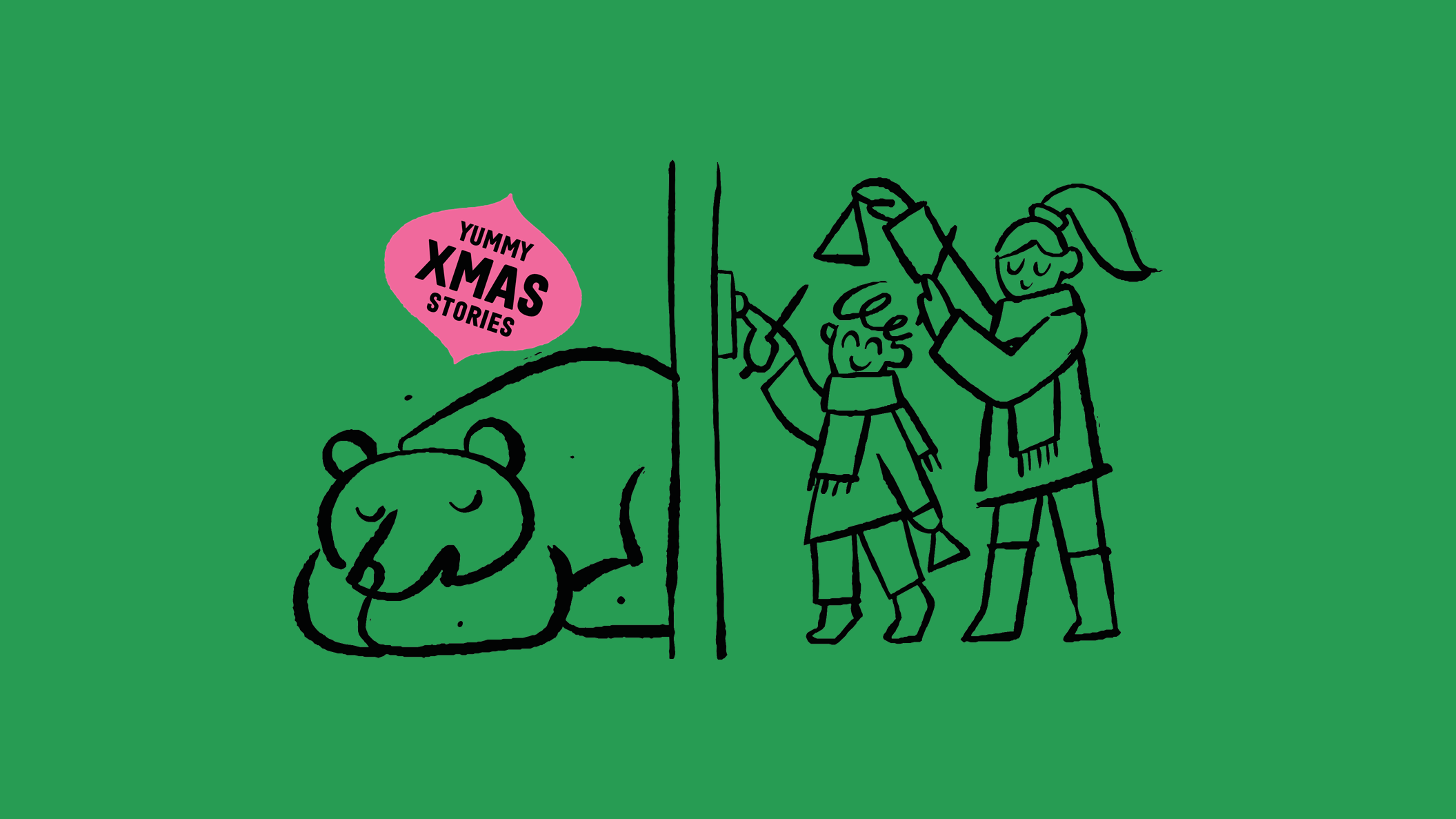Ethiopia Damo was just the beginning of our journey to the homeland of coffee. The natural beauty, the aromas and the flavors of the country, kept urging us on in our quest for specialty coffee. We were on a mission to search for the varietals that would bring a limited and rare taste experience to your cup.
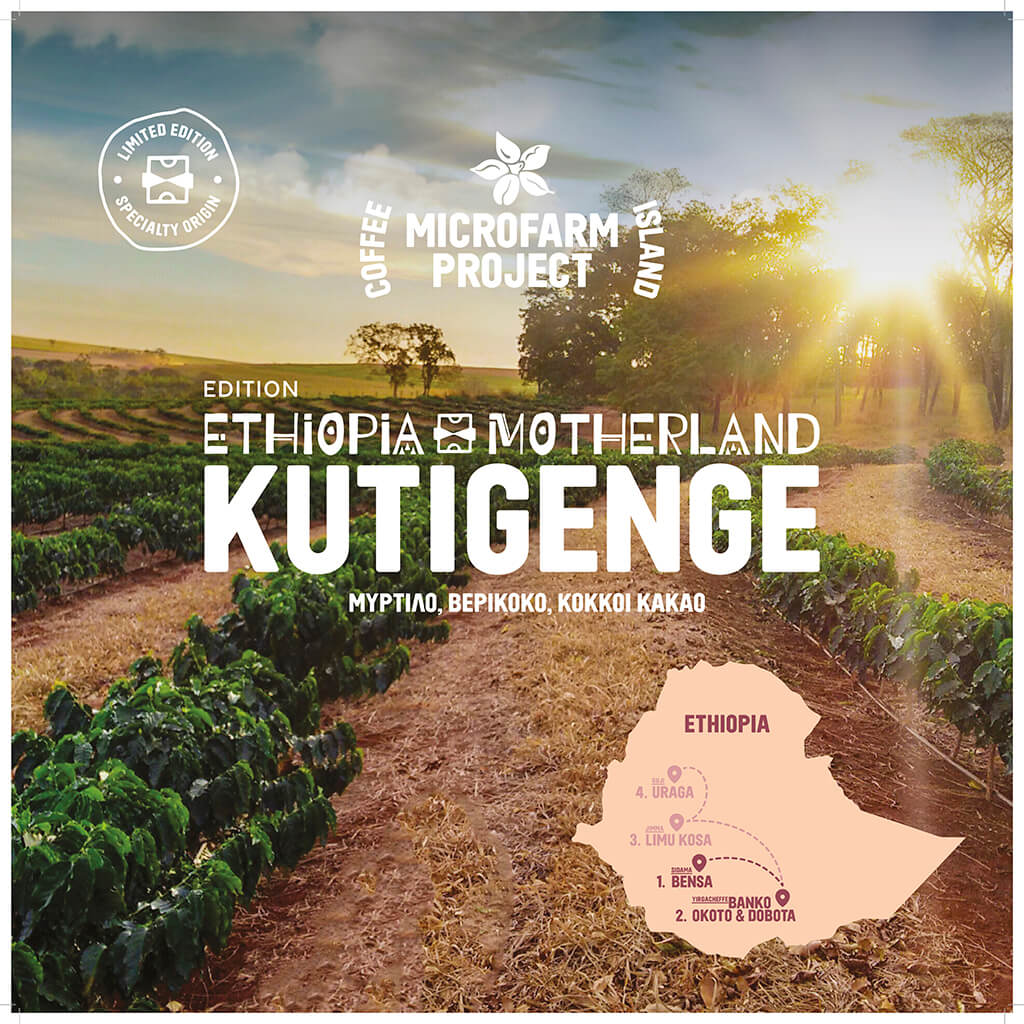
Our next stop?
Addis Ababa. There, our team tasted and evaluated 41 coffees. That motivated us to trace them back to the source of their taste, aroma and distinctiveness.
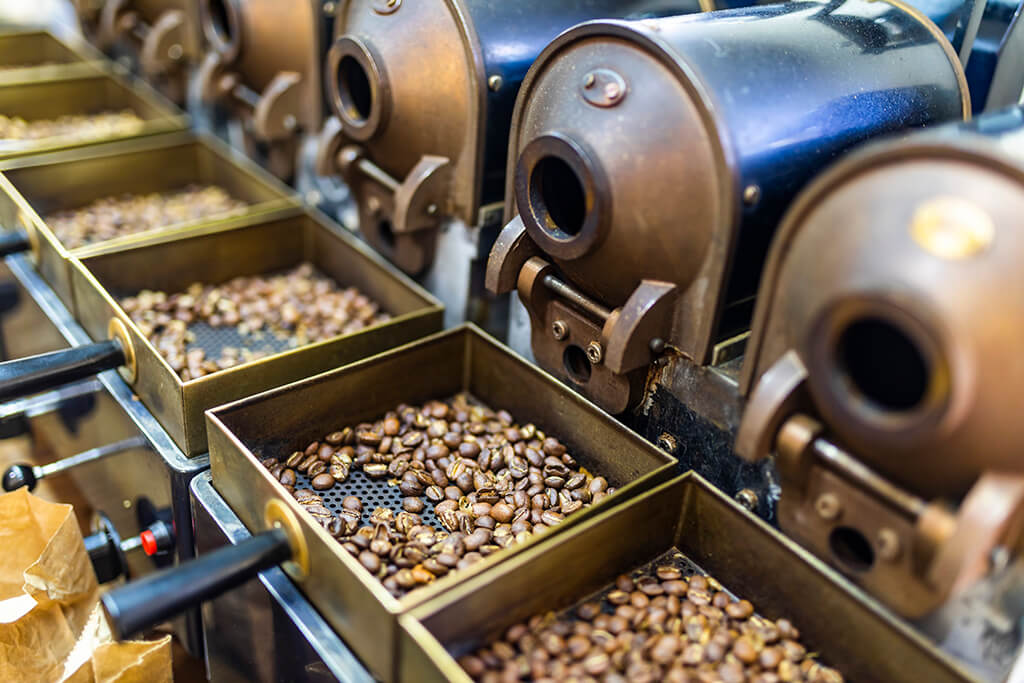
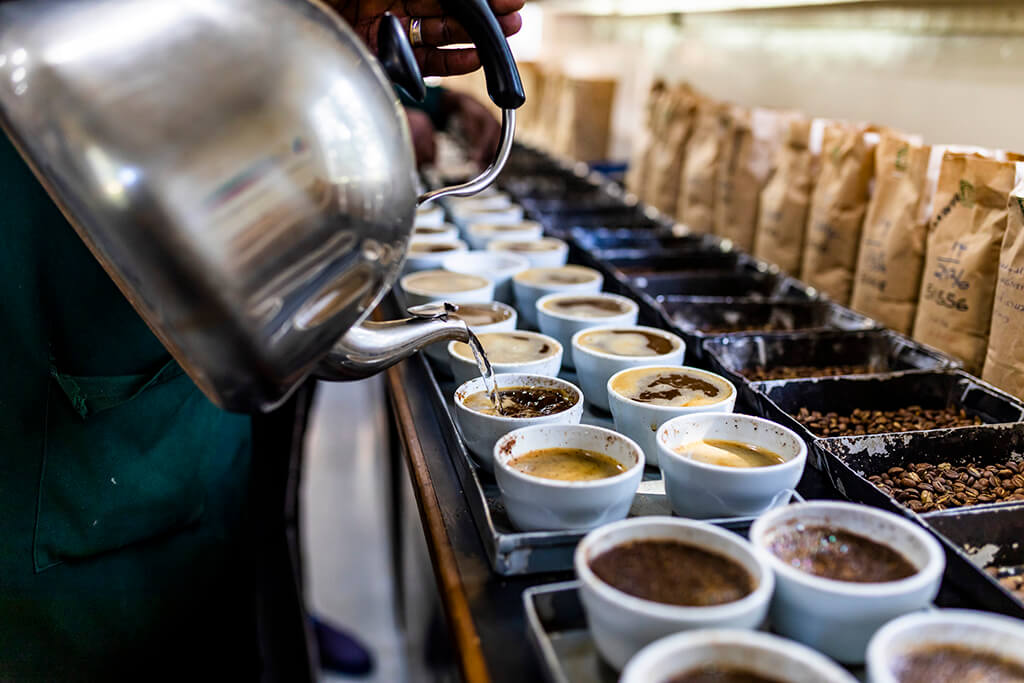
So, this is when we decided to meet the microfarmers, in Yirgacheffe.
When we got there, a surprise was waiting for us!
The two microfarmers weren’t there. Being overly excited to meet us, they had travelled to Addis Ababa instead of just waiting for us at Yirgacheffe, as we had agreed in the first place. Eventually, the meeting had to be postponed for the next day, making our anticipation grow even more.
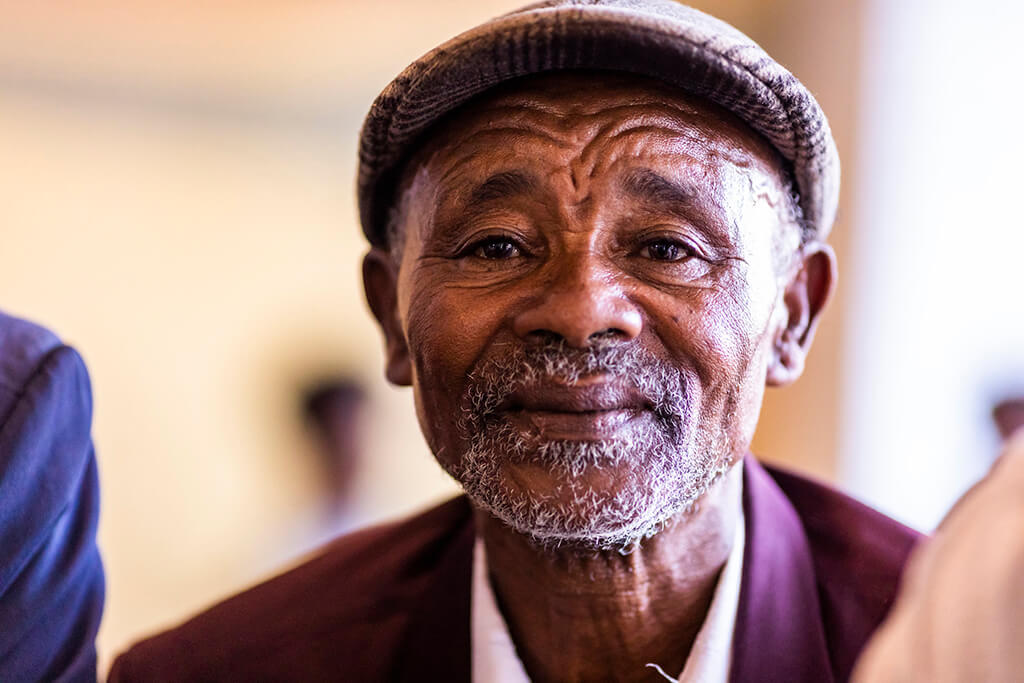
Kutiyo & Tegenge: The microfarmers with the noble eyes
What caught our attention the moment we met them? The farmers’ faith in us and our goals. They made us realize that their trust comes straight from years of pure experience, hence, being able to instinctively read people. As the discussion went on, we became aware that Kutiyo and Tegenge were totally on board with our philosophy, our culture and they trusted our knowledge about coffee.
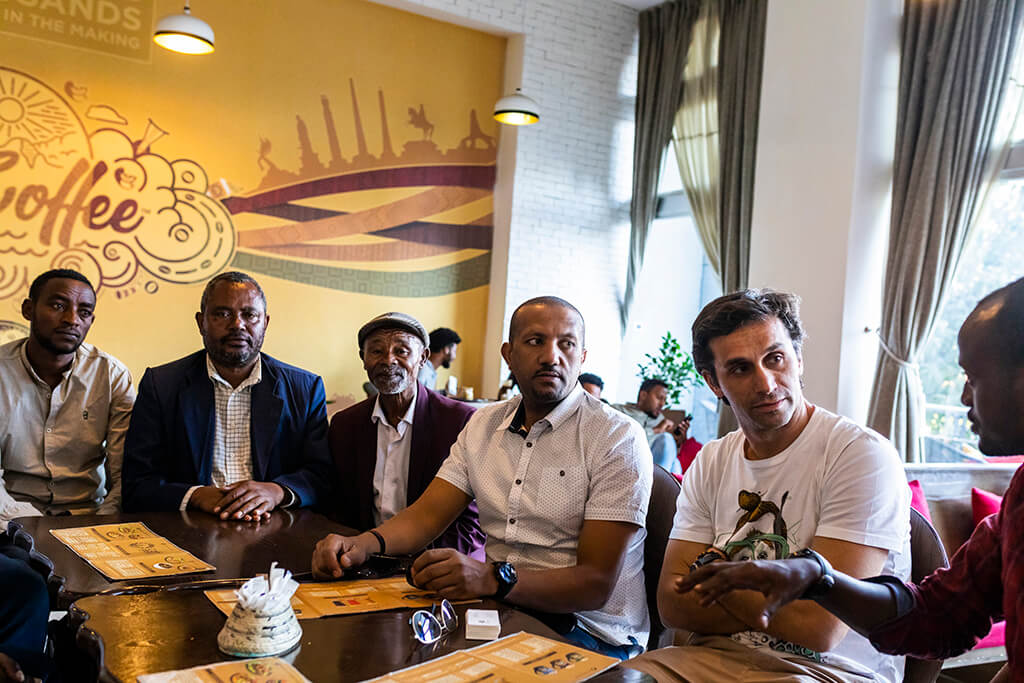
We were lucky to be part of a unique experience. People from different parts of the world, with different characteristics and way of life, were creating an unbreakable bond between us and them, effortlessly. Their common love for coffee was the point we had in common. It was where our different worlds met.
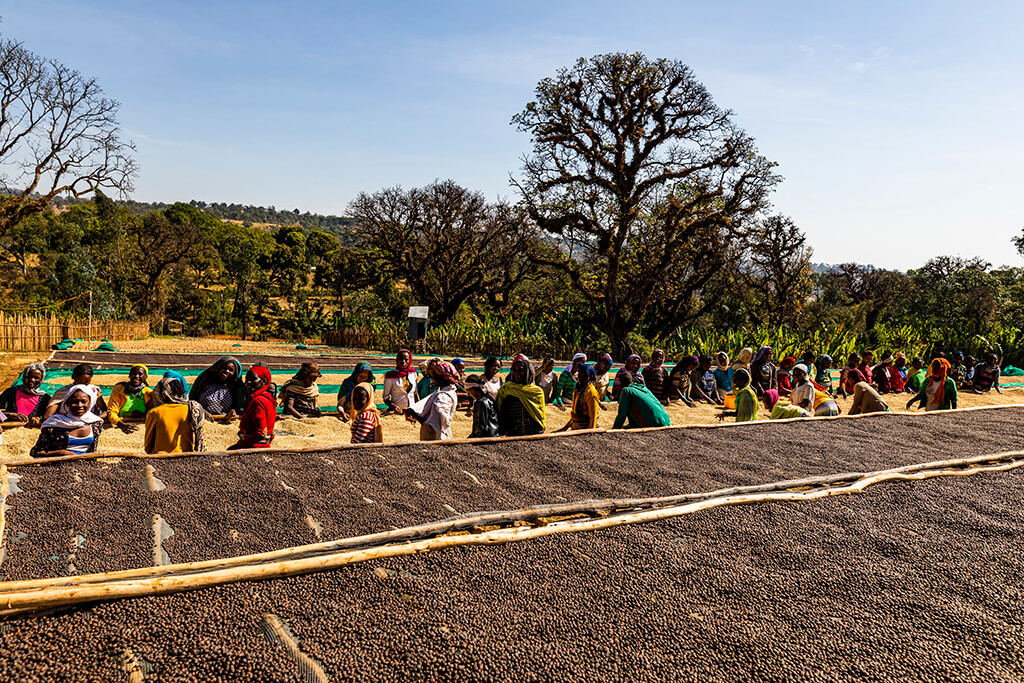
Coffee through the story of its own people
This trip was not only about the discovery of a unique coffee, but also took us behind the scenes to the daily lives of the people who grow coffee for us to enjoy. Our two new friends a.k.a. “the grandpas” as we liked to call them – were two wise people, with deep experience and knowledge regarding their own coffee, their very own harvest. All of their life unfolded around coffee. In their own words, they used to be members of the Yirgacheffe Union, but that cooperation was far from fruitful for them.
So, they made the decision to become independent growers, collect the harvest, and process and store the coffee at home. They confided to us that if they couldn’t sell the coffee which was stored in their backyard, they wouldn’t be able to make ends meet and they wouldn’t even be able to send their kids to school.
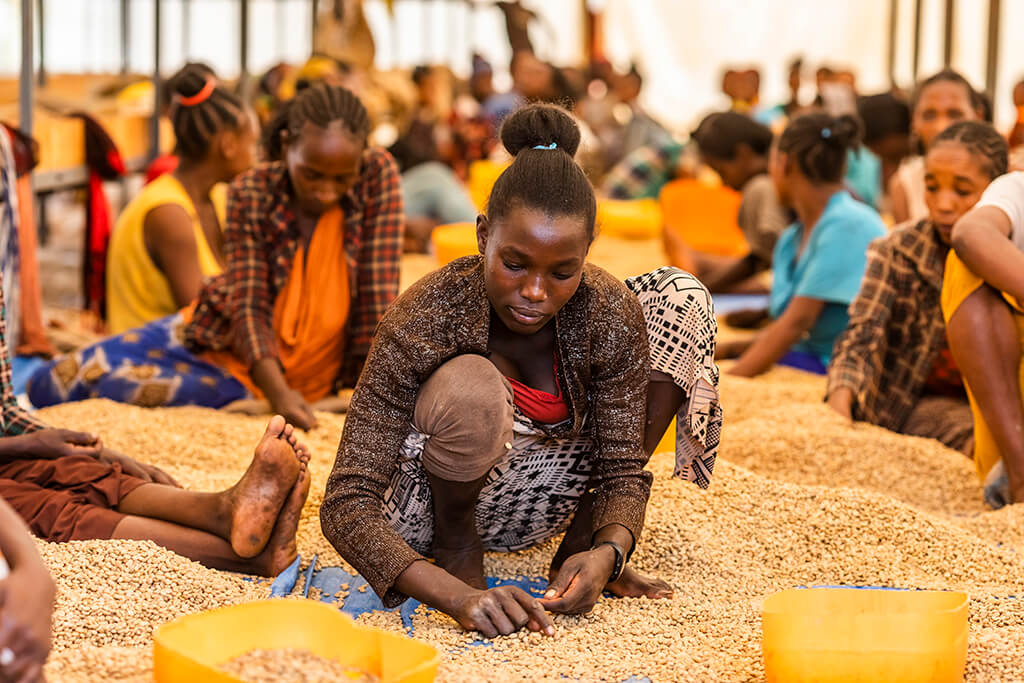
Our responsibility towards them
Or, to be precise, is the responsibility we feel – or even better – the debt we owe to the people struggling in the local coffee industry. We recognize the quality of their work and seek to help the coffee they produce become valued by you. So what did we do? We immediately agreed to buy and supply and stock their coffee so that you would be able to enjoy it for yourself!
Ethiopia Kutigenge: 19th Microfarm Project, 2nd of the Ethiopia Motherland series
A name to honor the people who are putting a tremendous effort every single day, to grow the coffee, Kutiyo Danibe and Tegenge Ocholo. It comes from Yirgachaffe, Banko Okoto & Dobota and it grows at an altitude of 1950 m. Its variety? 100% Specialty Arabica Heirloom. Method of processing? Dry or just Natural. Roasting? Medium.
Aromatic profile: Blueberry, Apricot, and Cocoa beans
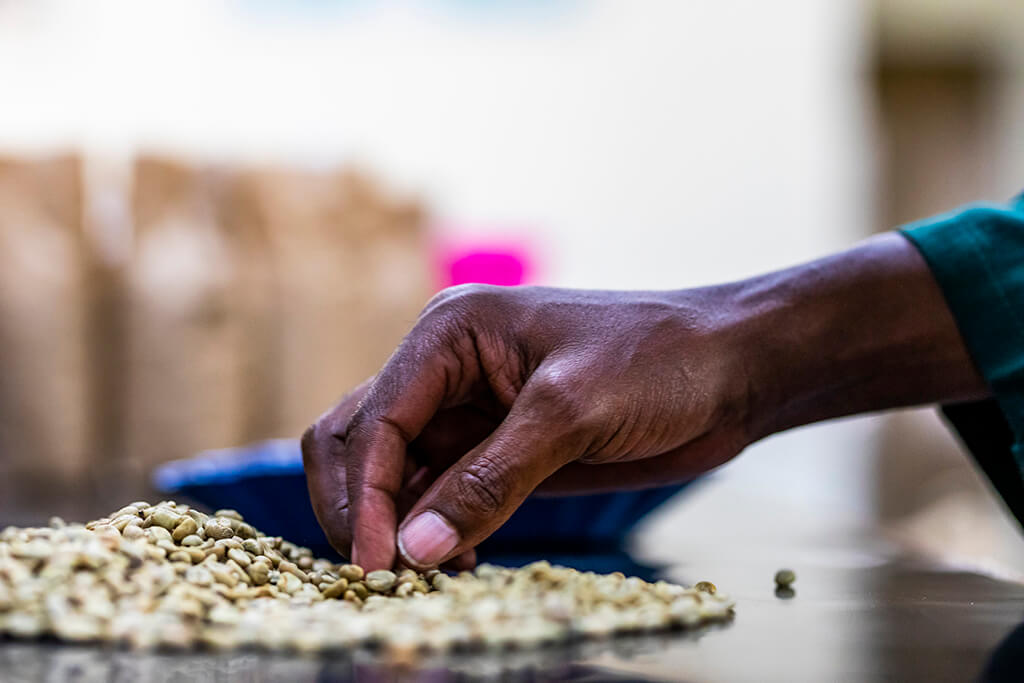
And don’t forget…
You may enjoy Ethiopia Kutigenge, but just for a little while, at the espresso bar or at home with beans from our Coffee Shop.
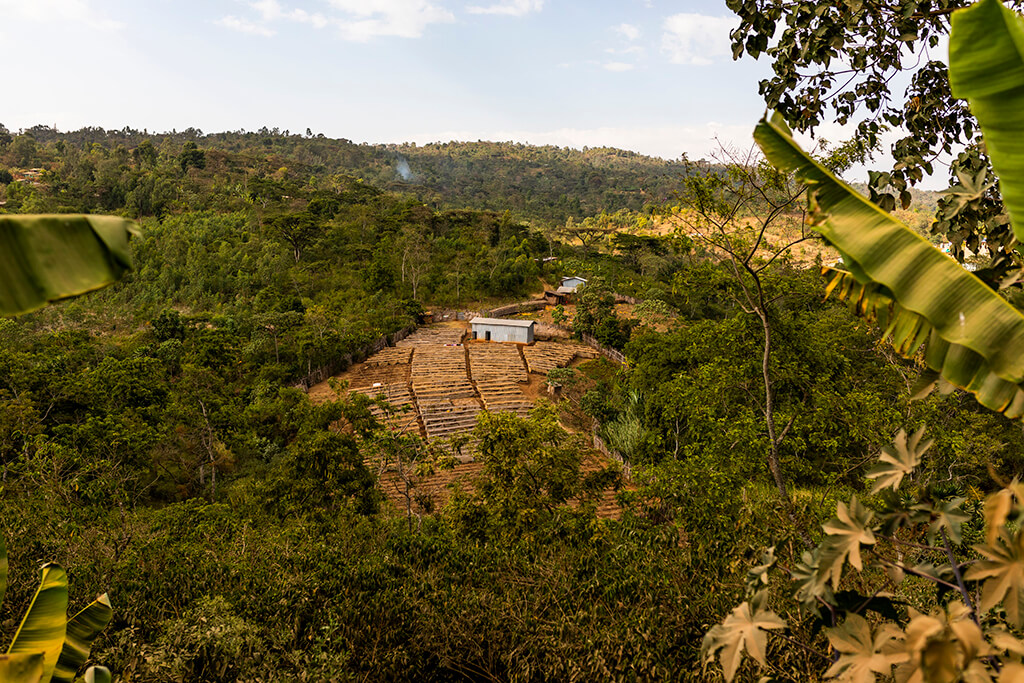
Note from the Coffee Island team that traveled to Ethiopia:
“We hope that, in the future, we would be able to visit Yirgacheffe, to meet once again with these two people which inspired us and moved us, again We want to see with our own eyes, if our effort to support them really paid off, if their kids are able to attend school and if they continue to grow their spectacular coffee in the facilities that they, hopefully, will now be able to build. We want to see their production grow in order for Kutiyo and Tegenge to be able to live a life they dreamt of. Keep in mind that, by supporting Microfarm you support microfarmers like them. Thank you.”





